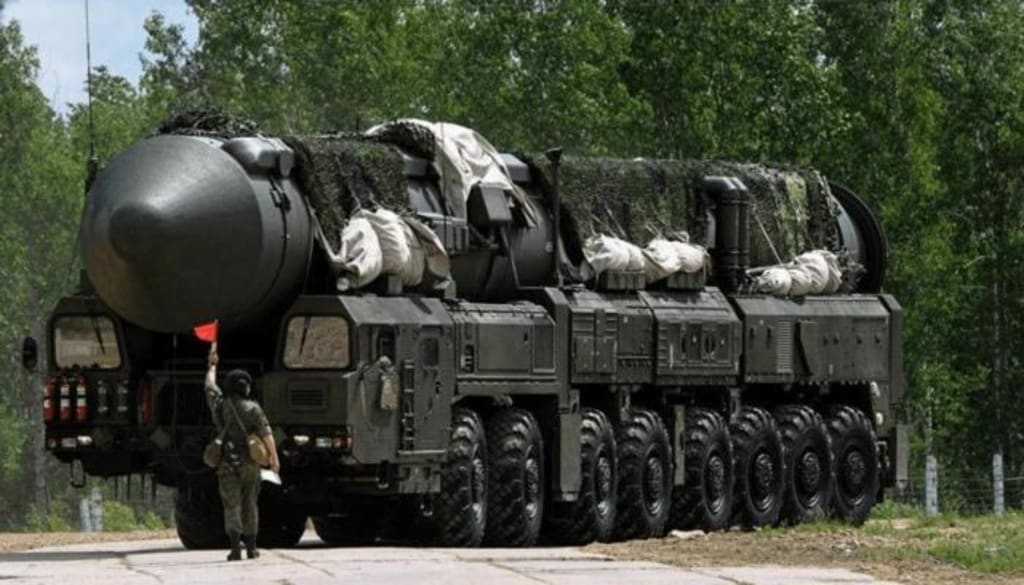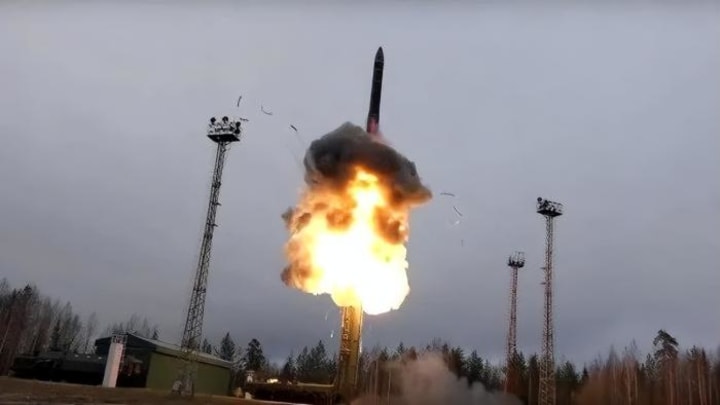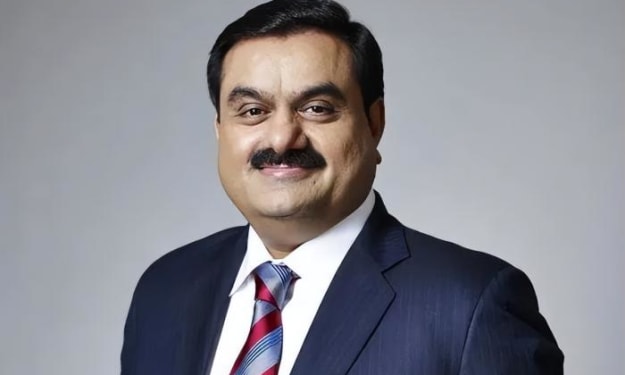
Polish President Dada is reportedly up to something again. He said in an interview that Poland may participate in the U.S. nuclear sharing program, and the two sides are negotiating for this. As a result, it didn't take long to get smacked in the face when a spokesman for the U.S. State Department stated that it hadn't even heard of such a thing.
Since the outbreak of the Russia-Ukraine conflict, Poland has been on the front line of anti-Russian efforts. After the attack on the Crimea Bridge, Russia counter-acted by launching missile attacks on multiple locations in Ukraine, and Belarus joined the fray by announcing the formation of a joint force with the Russian army to deal with the border threat.
In addition, the Russian and U.S. top brass repeatedly exaggerated the threat of nuclear war, making the world on edge, Dada will come up with this strategy, trying to use the U.S. nuclear power to pressure Russia, to find a strong enough umbrella for themselves.
Judging from the U.S. response, Washington is currently cautious and unlikely to deploy nuclear weapons to an Eastern European country like Poland. On the one hand, because it is too close to the Russian-Ukrainian front line, it is likely to lead to an escalation of the situation; on the other hand, it is also out of distrust of Poland, the degree of death of the Polish political hierarchy is obvious to everyone.
But this possibility is objective, Germany, Belgium, and other Western European countries have been hoping that the United States will remove the nuclear weapons deployed in their own homes, and with Eastern Europe becoming a new battleground for the U.S.-Russian confrontation, Washington is also interested in shifting its nuclear deployment eastward.
The key is how the situation in the Ukrainian theater develops. While Russia is at the mercy of the U.S. and NATO behind Ukraine in conventional warfare, the initiative to use nuclear weapons or not is in Putin's hands. Once pushed to the brink, the Russians, with their "great power" mentality and obsession with "heroism," can hardly guarantee that they will not cross the red line.

In fact, during the 200 days of special military operations, Russian forces have used strategic nuclear weapons on the battlefield several times, but only as conventional weapons, such as Islander missiles with nuclear warheads, Tu-95 and Tu-22 strategic bombers, etc.
The Russian Federation is also accelerating the upgrade of its nuclear forces. Just two months after the outbreak of the conflict between Russia and Ukraine, Russia test-fired the Sal mat intercontinental missile, a super heavy missile that can deliver 10 nuclear warheads with a range of more than 18,000 kilometres, which can hit any target in the North and South Poles, and can also effectively evade enemy defense systems, and will replace the Satan in the next few years. "The Satan will become the main intercontinental missile of the Russian army in the next few years.
In addition, the Russian military has also strengthened the construction of nuclear submarines. Since the Soviet era, the Russian military has been engaged in a maritime arms race with NATO. But because its surface warships are so far behind NATO's strength, the Russian Navy has been focusing on nuclear submarines as a strategic priority.
With global warming and the accelerated melting of the Arctic glaciers, the importance of the Russian Northern Fleet has become increasingly evident. The United States and NATO are far inferior to Russia in terms of development and investment in the Arctic region. In addition, Russia has not given up the construction of nuclear submarines even in the most difficult time in the early years of independence, so it has maintained a nuclear force sufficient to deal a devastating blow to the U.S. Navy.
The USS Reagan nuclear-powered aircraft carrier was just unveiled at the joint military exercises between the United States and South Korea at the end of last month, and the Russian naval fleet announced two additional nuclear submarines at the back, specifically chosen to depart from the Northern Fleet, the true purpose of which speaks for itself.
Of course, the United States and NATO are not afraid of the master. NATO Secretary General Ens Gutenberg recently announced that a nuclear deterrence exercise will be held next week to show Russia that they are determined to fight to the end.
Gutenberg said that if the annual routine exercises are canceled because of the Russian-Ukrainian conflict, it will give Russia a false impression. The best way to prevent escalation is to go head-on and deter Russia.
However, the U.S. government was again exposed to spending a huge amount of money on a large amount of radiation protection drugs, totaling up to $290 million. The drug is called Ministration and is used to treat blood disorders caused by nuclear radiation.
Although the U.S. Department of Health has repeatedly stressed that the purchase has nothing to do with the Russia-Ukraine conflict and is just normal preparedness work, it still sparked a lot of suspicion and panic. After all, the day before they announced the purchase, Biden had just made a "nuclear doomsday" statement.
Billboards in parts of the U.S. were also filled with emergency solutions for dealing with nuclear radiation. As early as this summer, New York City officials began rotating a video telling people how to respond to a nuclear bomb blast.
Even more active than the United States is Poland. As of now, Warsaw has set up more than 600 iodine tablet distribution points in case of a possible nuclear emergency. This is just a psychological comfort, if a nuclear war does break out, with Poland's small size and military level, the probability is that the country will be destroyed.
It is clear to all that nuclear weapons are best used for political deterrence, not military strikes. But the Russian-Ukrainian conflict has continued until now, and all parties are getting closer and closer to losing control: the United States and Europe are feverishly lighting fires, and Ukraine is even using car bombs as a means of terrorism, which is not challenging Russia's bottom line.
I can only say that Europe has been in peace for so long that it may have forgotten how "nuclear peace" came about in the past 70 years. The gun is more, from the fire will not be far away.






Comments
There are no comments for this story
Be the first to respond and start the conversation.